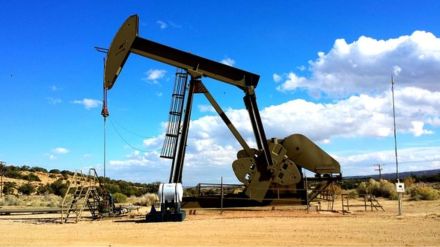The domestic oil and gas industry is anticipating some relief from the Union Budget 2023 as the disruption induced by the Russia- Ukraine war led to losses or reduced profitability across the hydrocarbon value chain.
“Currently, domestic producers are subject to steep tax expectations amounting to ~70% of their income. This burden has been further accentuated by the Special Additional Excise Duty (SAED) (on auto fuels). Now, as we approach Union Budget 2023-24, there are definite expectations from the government to relook at this curtailing tax structure,” a Cairn Energy spokesperson said.
According to him, the government must consider capping taxes at 35-40%, as is the norm across the globe. This would help the sector attract much-needed investments to boost production from existing fields and also conduct fresh exploration activities for both conventional and non-conventional fuels.
Prashant Vashisht, VP and Co-Group Head, ICRA also believes that the taxes like SAED have pared the profitability of upstream companies and refiners. “With the softening of crude prices and reduction in gross refining margins, the industry has been demanding that the SAED be discontinued,” Vashisht said.
The prices of the products have declined significantly from the highs in June 2022 thus this is seen as the right for the removal of these taxes. “The imposition of taxes is making exports unfavourable thus impacting the overall profitability of refiners. Complete removal of these taxes would be an expectation,” Hetal Gandhi, Director-Research, CRISIL Market Intelligence and Analytics said.
During FY2023, the oil marketing companies (OMCs) incurred huge losses on the sale of auto fuels and LPG owing to elevated crude oil prices. While the Government of India (GoI) in October 2022, approved a one-time grant of Rs 22,000 crore to PSU OMCs for losses incurred on sale of LPG, the same only partially compensates for the losses incurred. “Accordingly, the industry’s expectation is for an adequate budgetary provision to compensate for losses incurred on the sale of auto fuels and LPG. Additionally, given the high price of LPG cylinders, the GoI is expected to continue providing subsidies for the Ujjwala scheme beneficiaries,” Vashist said.
Another long-standing demand from the industry is to include Natural Gas, crude oil and other petroleum products under the GST regime to enable free flow of input tax credit and to avoid stranded tax. “While the decision on the GST side is finalized by the GST council, announcement of inclusion of petroleum products and natural gas would be a big positive to boost consumption,” Hetal Gandhi of Crisil Market Intelligence said.
In order to boost the use of natural gas, industry is expecting nil custom duty on LNG Imports. “LNG imports attract a customs duty of 2.5%. Exempting LNG imports from customs duty like crude, which attracts nil duty, would promote the use of natural gas as a fuel,” Pankaj Kalra, CEO of Essar Oil and Gas Exploration said.
According to Kalra, currently the GST on regasification of LNG remains high, at 18%, thereby increasing the landed cost and accordingly there is a request from industry to the Government to reduce the GST rates given the high prevailing price of LNG.
